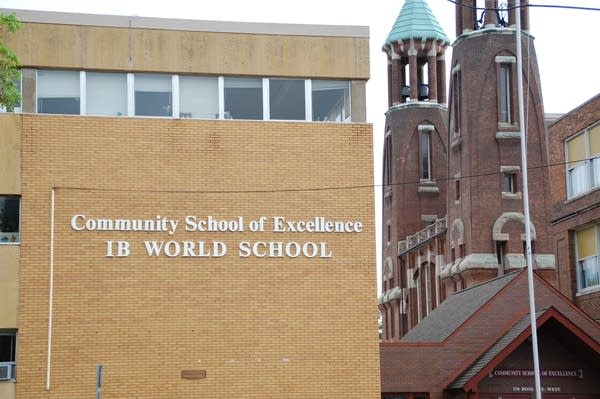Problems at St. Paul charter school could lead to tighter state controls

Go Deeper.
Create an account or log in to save stories.
Like this?
Thanks for liking this story! We have added it to a list of your favorite stories.
When an independent investigation found that the superintendent of a St. Paul charter school had misused federally subsidized lunch funds and discouraged employees from reporting suspected cases of child abuse, the entity that acts as the charter's overseer decided something had to be done.
Officials at Concordia University, which serves as the authorizer of the charter Community School of Excellence, asked the board to dismiss its embattled superintendent, Mo Chang. The investigation determined she had created a culture of fear among employees.
"We said we think it would serve the school best if there was a change in the leadership of the school," said Lonn Maly, chair of the Charter School Advisory Council at Concordia.
St. Paul police are investigating the school over its child abuse reporting policy. Two former employees have brought a whistleblower lawsuit against the school. In the past year, the school has faced numerous allegations of mismanagement.
Turn Up Your Support
MPR News helps you turn down the noise and build shared understanding. Turn up your support for this public resource and keep trusted journalism accessible to all.
State education officials and Concordia officials say they're doing everything they can under the law to deal with the problems. But at least one former Minnesota lawmaker is calling for the state to take tighter rein of charters and their overseers.
Indeed, the case of the troubled school has fueled concern among charter critics and supporters that the state has little power to fix problems at charter schools.
Despite Concordia's request, the school board refused to remove Chang as leader, on the grounds that the problems cited in the investigation had been fixed and that Chang was working to improve her relationship with employees.
Maly said the two sides have agreed to end their relationship, albeit two years down the road.
"They said to us, 'Why don't we agree to disagree and when our contract expires in June of 2016, why don't we just go separate ways,'" he said.
Although an authorizer can cancel a charter's contract, essentially closing the school immediately, Maly said that's not something Concordia wants to do.
In an email to MPR News, Chang said she takes concerns about her school seriously and that school officials have worked to fix problems at the school by adjusting procedures and providing training for staff. She's confident the school is on the right path.
Chang said the school also is looking for a new authorizer. School board chair Patti Hessling did not respond to a request for comment.
The turmoil at Community School of Excellence follows years of concerns raised by charter critics and supporters that it is difficult to determine who to hold accountable when there are problems in Minnesota's 150 charter schools.
Some say it's too difficult to close down underperforming charters. Dozens of charters have closed in Minnesota over the last two decades, but typically after they encounter financial problems, said Myron Orfield, a charter critic and researcher at the University of Minnesota.
In 2009, lawmakers tinkered with state law, changing so-called charter sponsors to authorizers, and making them more accountable for the financial and academic affairs of their schools.
But in most cases even if there has been wrongdoing, it's up to the school board, not the authorizer to make changes.
The state's role is to oversee the authorizer.
Officials at the state Department of Education recently asked Concordia to explain why it is no longer pressing for new leadership at Community School of Excellence — and to lay out its oversight strategy for the school.
"What we want to hear from them is [now that] you've raised these concerns, what are you doing to address those to ensure a high quality school and a high quality education?" said Kevin McHenry, the department's assistant commissioner.
McHenry said the state will have a new system for regularly evaluating authorizers next school year.
But one former Minnesota lawmaker doesn't think that's going to be enough.
"Here we have a situation where I think we can do a better job," said former state Sen. Kathy Saltzman, now state director for the education reform group Students First. "I think in doing that we will serve children better, students better, the public better. So that's the challenge before us."
Saltzman's group generally supports charters, but proposed legislation this session prompted by the ongoing issues at Community School of Excellence.
The bill, which didn't get a committee hearing during the session, would require the state to take action if it has concerns about a charter school.
Saltzman said the group will push the issue of charter oversight again next legislative session.
State Sen. Patricia Torres Ray, who leads an education committee at the Capitol, said charter accountability will likely be part of next year's agenda.
"I'm thinking that I need to pay very close attention and that next year I have to give that issue a top priority," said Torres Ray, DFL-Minneapolis.
Charter school supporters say before lawmakers make any big changes to charter law, they should wait to see how the new authorizer evaluation system works out.
"I think we've got to let the process work through," said Eugene Piccolo, executive director of the Minnesota Association of Charters Schools. "They're still finalizing the criteria of how authorizers are going to be assessed in terms of whether they're doing their job."


